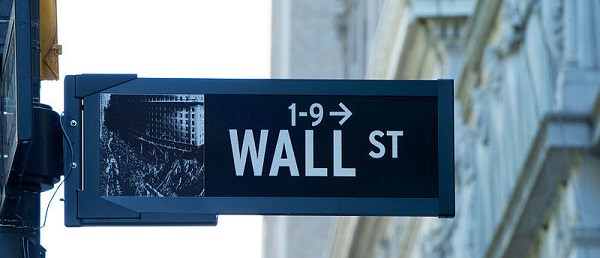Alberta
“Cheer up, things could be worse.” So, we cheered up. Things got worse.
In healthier times for athletes and athletics, there were several tried-and-true methods of creating a debate likely to create serious response from all sides: which of the major professional leagues is best?
The question has special impact now, as hoopsters, skaters, gridders and ballplayers — joined by governments and team bosses — seek the best way to survive the anguish caused by COVID-19 and restore stability for all teams, all sports and all the fans who care about them.
All are staggering these days.
In the pandemic’s early chapters, the mantra became familiar: “Cheer up, things could be worse.” So, we cheered up. Things got worse.
The NHL fights the coronavirus by limiting information. Baseball players and owners pick this time to enter wrist-twisting events that probably will have no long-term effect. Football operators dig themselves into and out of political crisis on a daily basis.
The National Basketball Association, somehow, has found its way past such errors. Their decision to let players put political opinions on game jerseys was thoroughly questioned but has received more praise than criticism.
Recently, in Canada, there was evidence that the National Basketball Association had a substantial edge in popularity and support, thanks almost totally to the 2020 success of the Toronto Raptors. Even the casual fan recalls the wild response generated, east to west and all points in between, by the shocking championship run created largely on the brilliance of Kawhi Leonard and the incredible effort generated by his teammates, night after night.
Never in recent history has competition in the National Hockey League, Major League Baseball or National Football League prompted bursts of wild, day-to-day support to equal the attention the Raptors attained in each playoff series leading to the ultimate victory. From a league-wide perspective, the excellence in which the NBA conducted all those games was remarkable.
Sure, the Edmonton Oilers had massive appeal when they dominated Stanley Cup races, year after year, in the heyday of Wayne Gretzky, Mark Messier and their partners who marched almost as a unit into the Hockey Hall of Fame. At other times, the Montreal Canadiens and Toronto Maple Leafs (believe it or not!) also reached that level, or came close to it. But the NHL has struggled — still struggles, in fact — to be recognized across the world as equal to basketball, baseball or football.
No doubt, the Toronto Blue Jays’ World Series successes in 1992 and 1993 are near the top in any ranking of this nation’s largest sports moments but MLB has done a lousy job of attracting Black players and getting young fans interested in their game.
Perhaps the NFL has made more errors than all the others combined. Their owners alternate between bowing to political pressure and actively defying political reality. Ignoring the tragic used-to-be “Redskins” story is an error that could emerge, perhaps for decades, as the biggest failure of all.
https://www.todayville.com/edmonton/author/johnshort/
Alberta
Is Canada’s Federation Fair?


 David Clinton
David Clinton
Contrasting the principle of equalization with the execution
Quebec – as an example – happens to be sitting on its own significant untapped oil and gas reserves. Those potential opportunities include the Utica Shale formation, the Anticosti Island basin, and the Gaspé Peninsula (along with some offshore potential in the Gulf of St. Lawrence).
So Quebec is effectively being paid billions of dollars a year to not exploit their natural resources. That places their ostensibly principled stand against energy resource exploitation in a very different light.
You’ll need to search long and hard to find a Canadian unwilling to help those less fortunate. And, so long as we identify as members of one nation¹, that feeling stretches from coast to coast.
So the basic principle of Canada’s equalization payments – where poorer provinces receive billions of dollars in special federal payments – is easy to understand. But as you can imagine, it’s not easy to apply the principle in a way that’s fair, and the current methodology has arguably lead to a very strange set of incentives.
According to Department of Finance Canada, eligibility for payments is determined based on your province’s fiscal capacity. Fiscal capacity is a measure of the taxes (income, business, property, and consumption) that a province could raise (based on national average rates) along with revenues from natural resources. The idea, I suppose, is that you’re creating a realistic proxy for a province’s higher personal earnings and consumption and, with greater natural resources revenues, a reduced need to increase income tax rates.
But the devil is in the details, and I think there are some questions worth asking:
- Whichever way you measure fiscal capacity there’ll be both winners and losers, so who gets to decide?
- Should a province that effectively funds more than its “share” get proportionately greater representation for national policy² – or at least not see its policy preferences consistently overruled by its beneficiary provinces?
The problem, of course, is that the decisions that defined equalization were – because of long-standing political conditions – dominated by the region that ended up receiving the most. Had the formula been the best one possible, there would have been little room to complain. But was it?
For example, attaching so much weight to natural resource revenues is just one of many possible approaches – and far from the most obvious. Consider how the profits from natural resources already mostly show up in higher income and corporate tax revenues (including income tax paid by provincial government workers employed by energy-related ministries)?
And who said that such calculations had to be population-based, which clearly benefits Quebec (nine million residents vs around $5 billion in resource income) over Newfoundland (545,000 people vs $1.6 billion) or Alberta (4.2 million people vs $19 billion). While Alberta’s average market income is 20 percent or so higher than Quebec’s, Quebec’s is quite a bit higher than Newfoundland’s. So why should Newfoundland receive only minimal equalization payments?
To illustrate all that, here’s the most recent payment breakdown when measured per-capita:
 |
For clarification, the latest per-capita payments to poorer provinces ranged from $3,936 to PEI, $1,553 to Quebec, and $36 to Ontario. Only Saskatchewan, Alberta, and BC received nothing.
And here’s how the total equalization payments (in millions of dollars) have played out over the past decade:
Is energy wealth the right differentiating factor because it’s there through simple dumb luck, morally compelling the fortunate provinces to share their fortune? That would be a really difficult argument to make. For one thing because Quebec – as an example – happens to be sitting on its own significant untapped oil and gas reserves. Those potential opportunities include the Utica Shale formation, the Anticosti Island basin, and the Gaspé Peninsula (along with some offshore potential in the Gulf of St. Lawrence).
So Quebec is effectively being paid billions of dollars a year to not exploit their natural resources. That places their ostensibly principled stand against energy resource exploitation in a very different light. Perhaps that stand is correct or perhaps it isn’t. But it’s a stand they probably couldn’t have afforded to take had the equalization calculation been different.
Of course, no formula could possibly please everyone, but punishing the losers with ongoing attacks on the very source of their contributions is guaranteed to inspire resentment. And that could lead to very dark places.
Note: I know this post sounds like it came from a grumpy Albertan. But I assure you that I’ve never even visited the province, instead spending most of my life in Ontario.
Which has admittedly been challenging since the former primer minister infamously described us as a post-national state without an identity.
Subscribe to The Audit.
For the full experience, upgrade your subscription.
Alberta
Big win for Alberta and Canada: Statement from Premier Smith

Premier Danielle Smith issued the following statement on the April 2, 2025 U.S. tariff announcement:
“Today was an important win for Canada and Alberta, as it appears the United States has decided to uphold the majority of the free trade agreement (CUSMA) between our two nations. It also appears this will continue to be the case until after the Canadian federal election has concluded and the newly elected Canadian government is able to renegotiate CUSMA with the U.S. administration.
“This is precisely what I have been advocating for from the U.S. administration for months.
“It means that the majority of goods sold into the United States from Canada will have no tariffs applied to them, including zero per cent tariffs on energy, minerals, agricultural products, uranium, seafood, potash and host of other Canadian goods.
“There is still work to be done, of course. Unfortunately, tariffs previously announced by the United States on Canadian automobiles, steel and aluminum have not been removed. The efforts of premiers and the federal government should therefore shift towards removing or significantly reducing these remaining tariffs as we go forward and ensuring affected workers across Canada are generously supported until the situation is resolved.
“I again call on all involved in our national advocacy efforts to focus on diplomacy and persuasion while avoiding unnecessary escalation. Clearly, this strategy has been the most effective to this point.
“As it appears the worst of this tariff dispute is behind us (though there is still work to be done), it is my sincere hope that we, as Canadians, can abandon the disastrous policies that have made Canada vulnerable to and overly dependent on the United States, fast-track national resource corridors, get out of the way of provincial resource development and turn our country into an independent economic juggernaut and energy superpower.”
-

 Automotive1 day ago
Automotive1 day agoTesla Vandals Keep Running Into The Same Problem … Cameras
-

 Daily Caller2 days ago
Daily Caller2 days ago‘Drill, Baby, Drill’ Or $50 Oil — Trump Can’t Have Both
-

 Banks1 day ago
Banks1 day agoWall Street Clings To Green Coercion As Trump Unleashes American Energy
-

 2025 Federal Election1 day ago
2025 Federal Election1 day agoLiberals Replace Candidate Embroiled in Election Interference Scandal with Board Member of School Flagged in Canada’s Election Interference Inquiry
-

 COVID-191 day ago
COVID-191 day ago5 Stories the Media Buried This Week
-

 Alberta24 hours ago
Alberta24 hours agoIs Canada’s Federation Fair?
-

 2025 Federal Election22 hours ago
2025 Federal Election22 hours agoPierre Poilievre Declares War on Red Tape and Liberal Decay in Osoyoos
-

 Business13 hours ago
Business13 hours agoJury verdict against oil industry worries critics, could drive up energy costs










